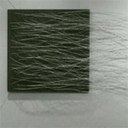0082 All about Eve
Eva Hesse and the Post-Minimalist Romantic Irony
Identifiers (Article)
Identifiers (Files)
Abstract
The article employs the category of Romantic irony for an interpretation of Eva Hesse's work. It takes as its starting point one of Arthur Danto's texts, where the American philosopher makes a positive re-evaluation of the artist's work, and reads it as a largely humorous combination of two – seemingly incongruent – traditions of American art of the 20thcentury: Abstract Expressionism and Minimalism. Features that Danto finds humorous, the author of the present article considers exemplary of Romantic irony, an approach that he finds in Eva Hesse's oeuvre. In the second part of the article, two competing interpretations of Eva Hesse's work are presented: Robert Pincus-Witten's and Lucy R. Lippard's. However, with the use of the notion of Romantic irony their standpoints can be reconciled, with a simultaneous indication of a previously dismissed, yet crucial, ironic aspect of the work of the American artist.
Statistics


License

This work is licensed under a Creative Commons Attribution-NonCommercial-NoDerivatives 4.0 International License.



